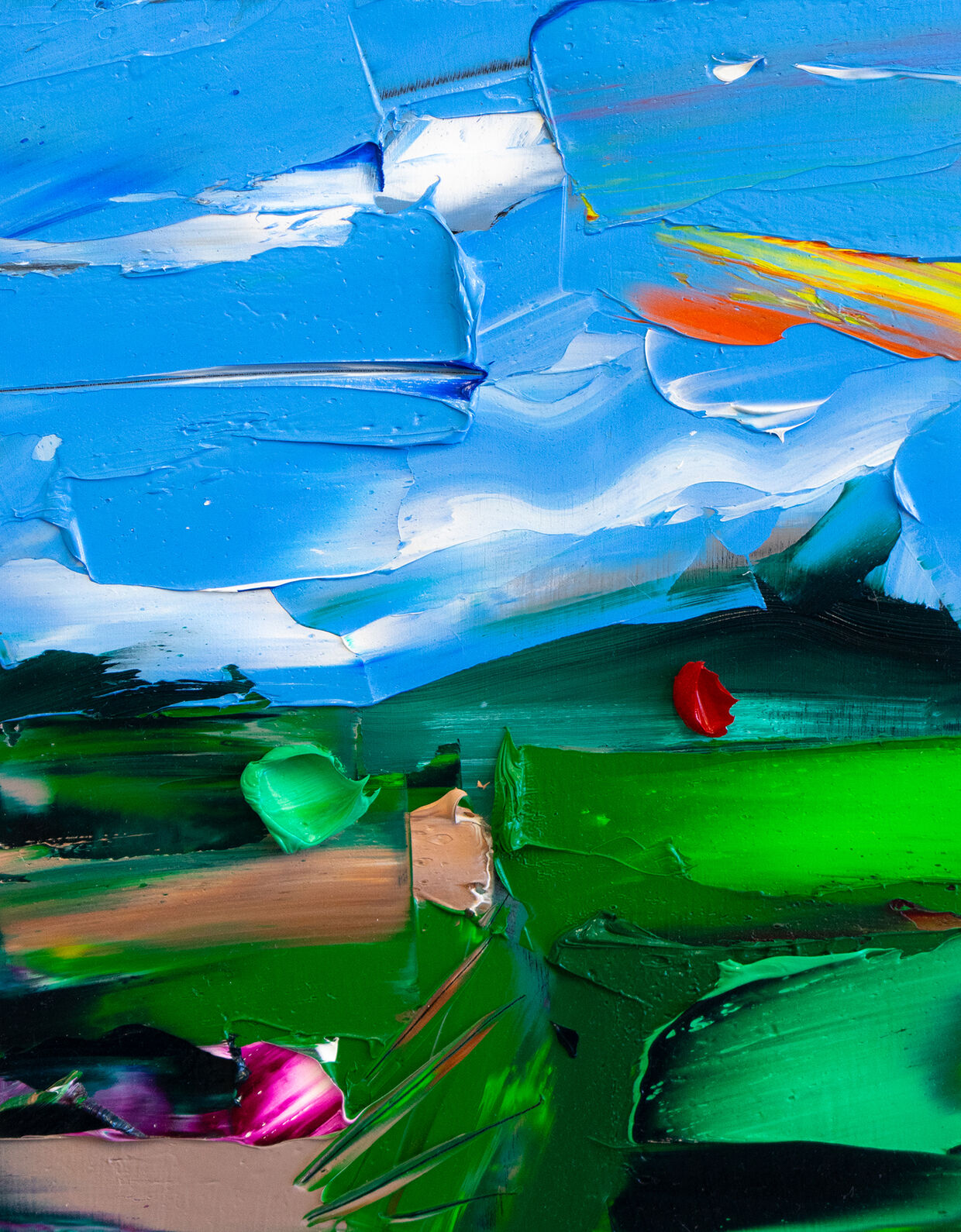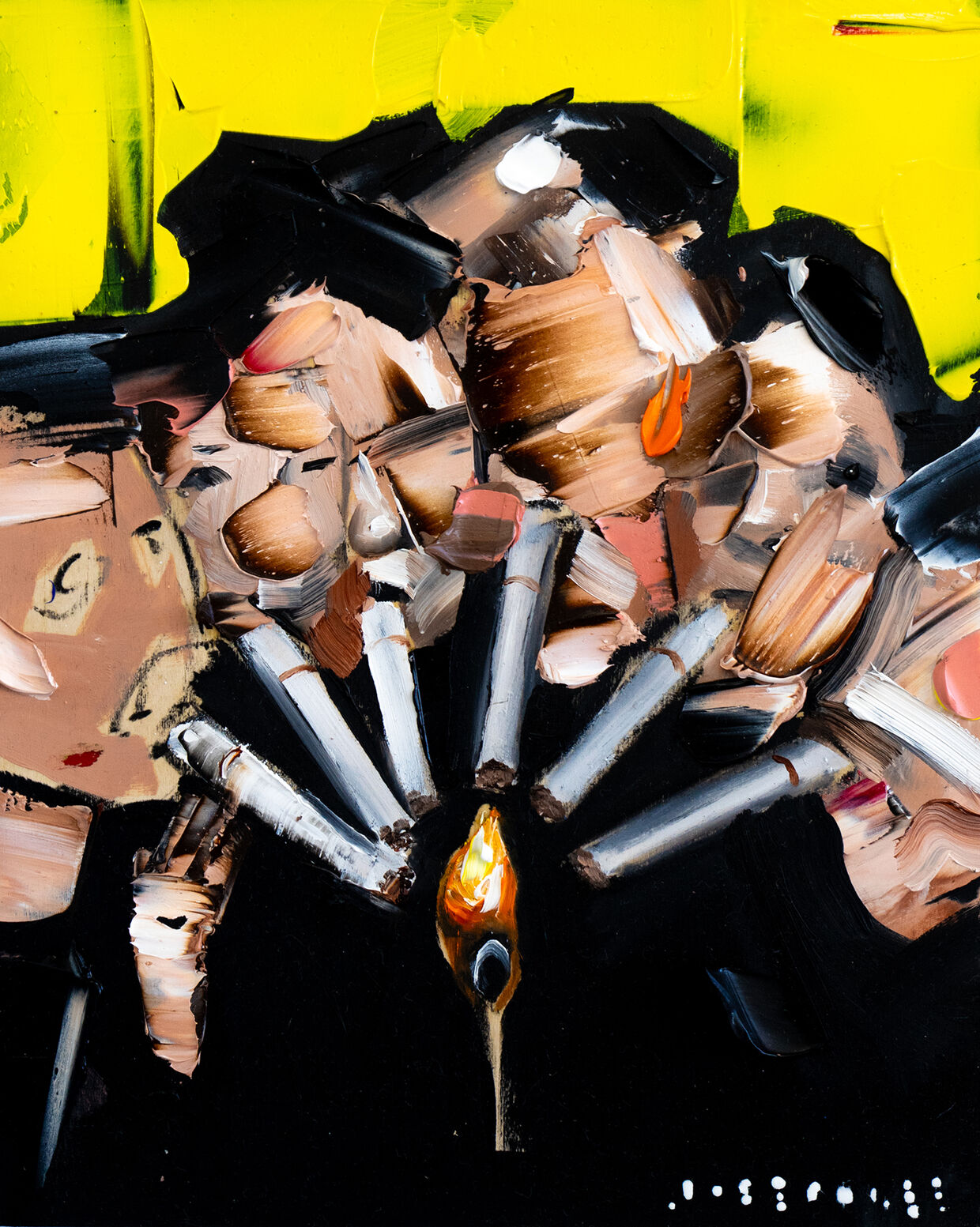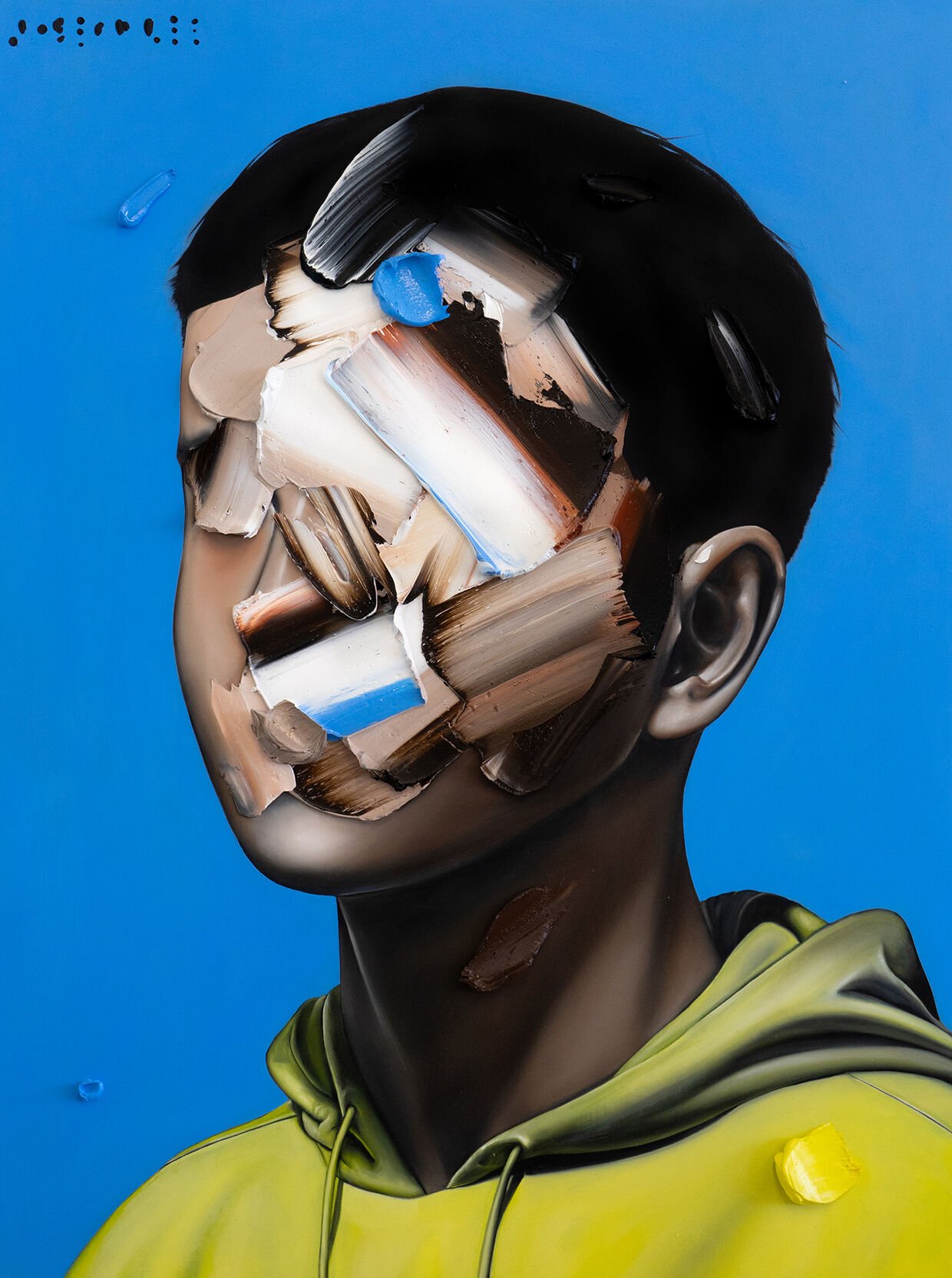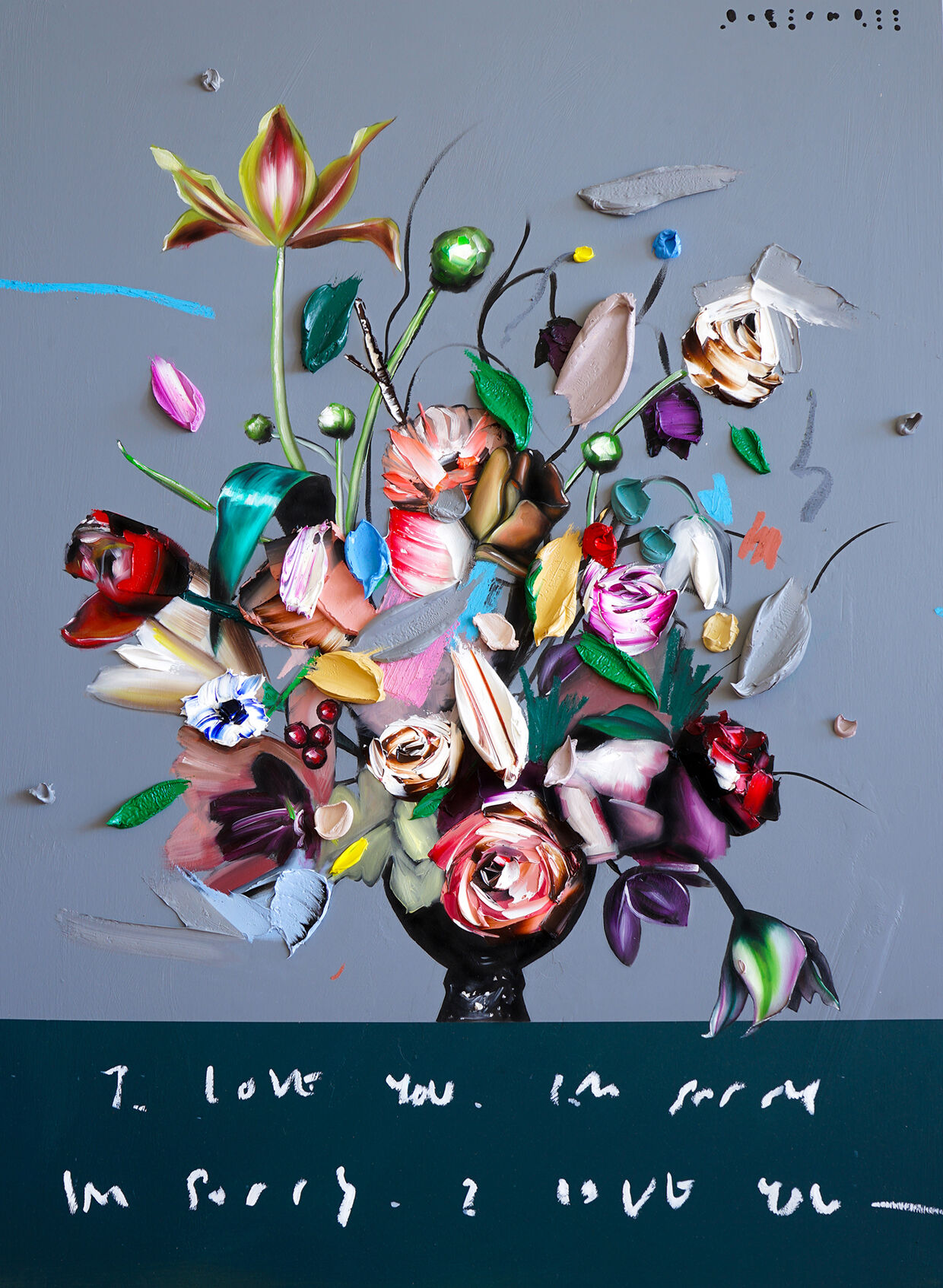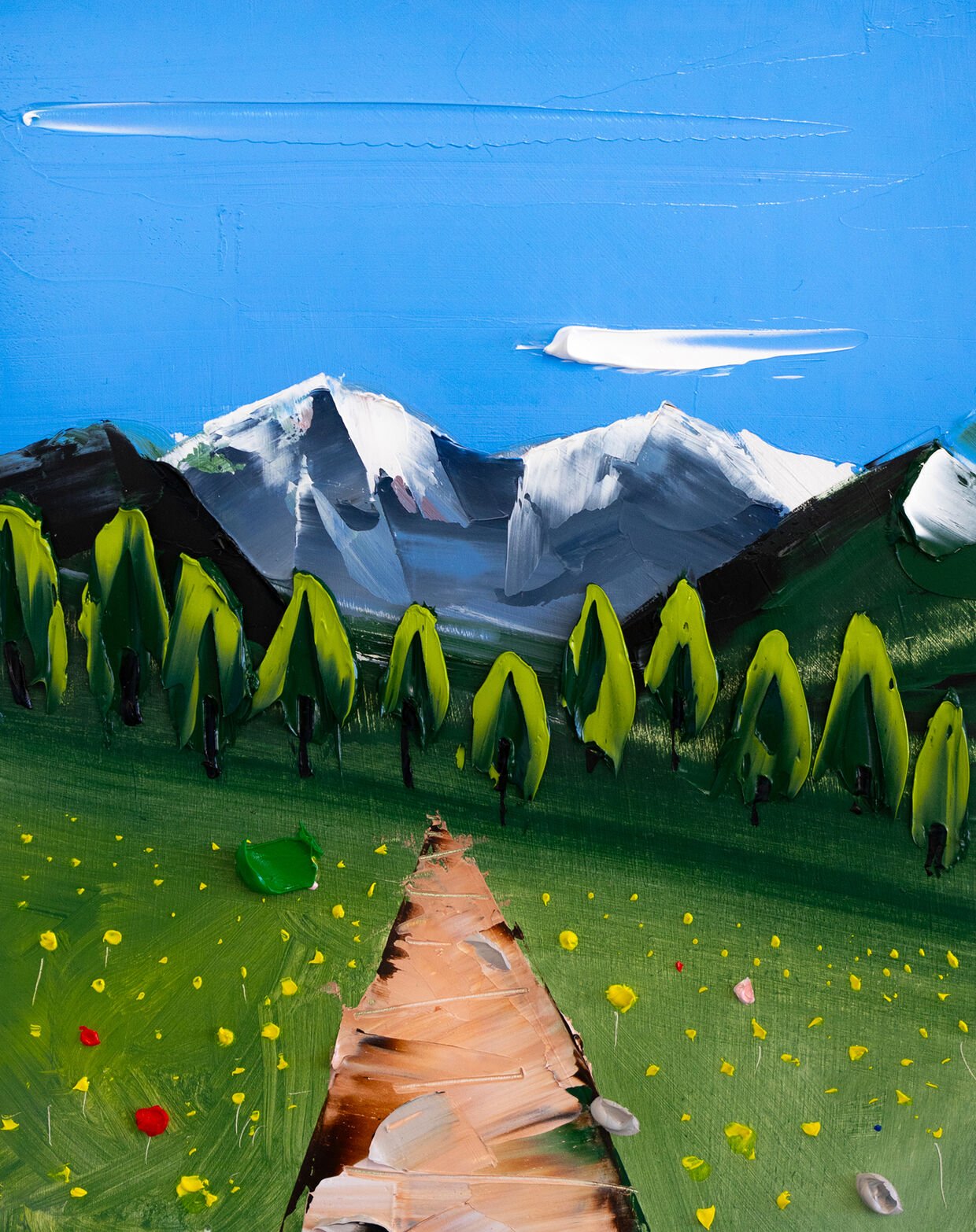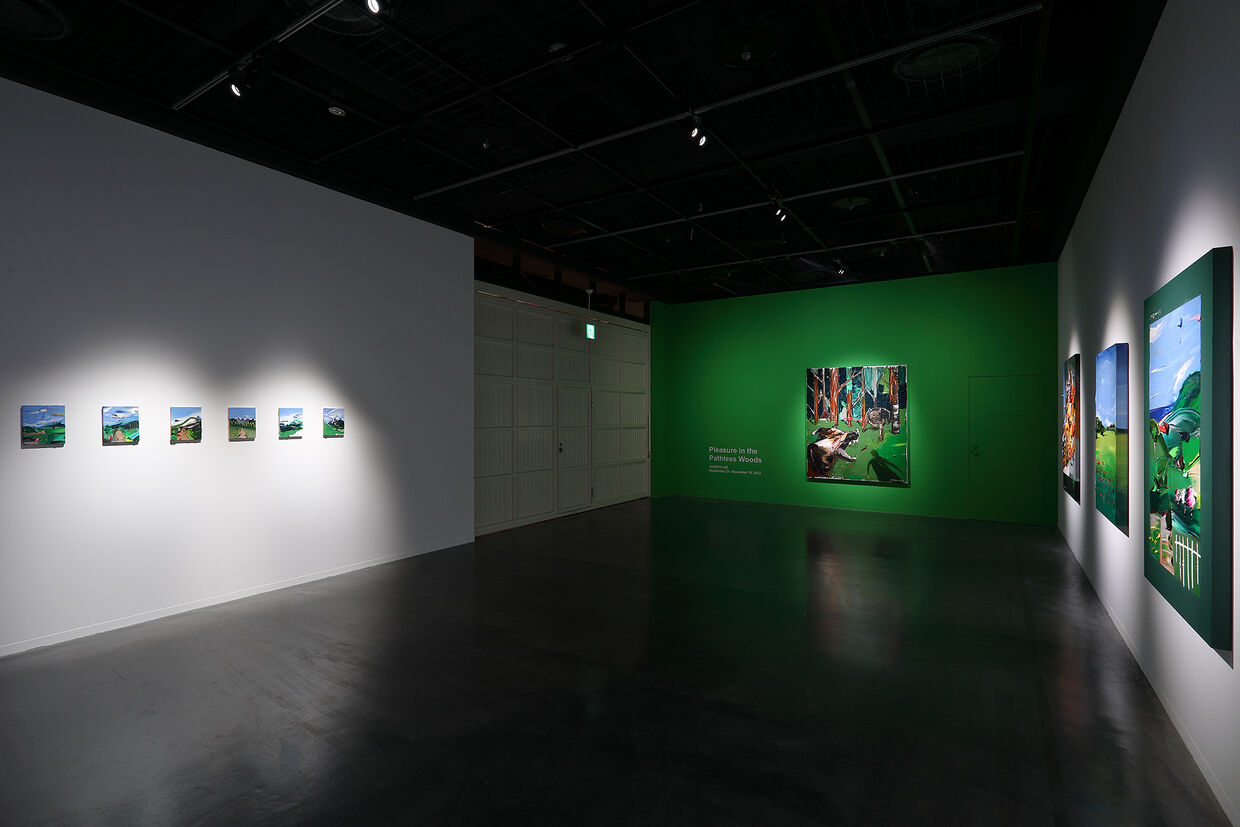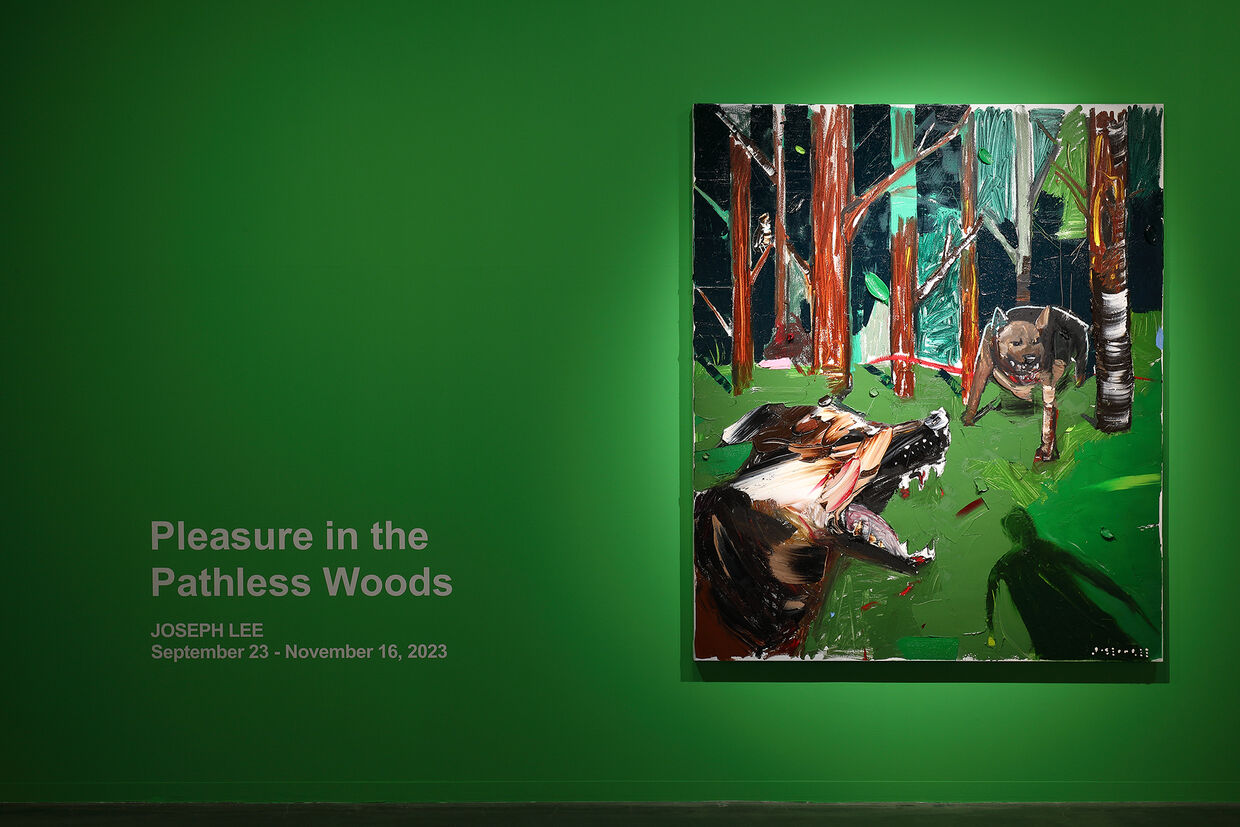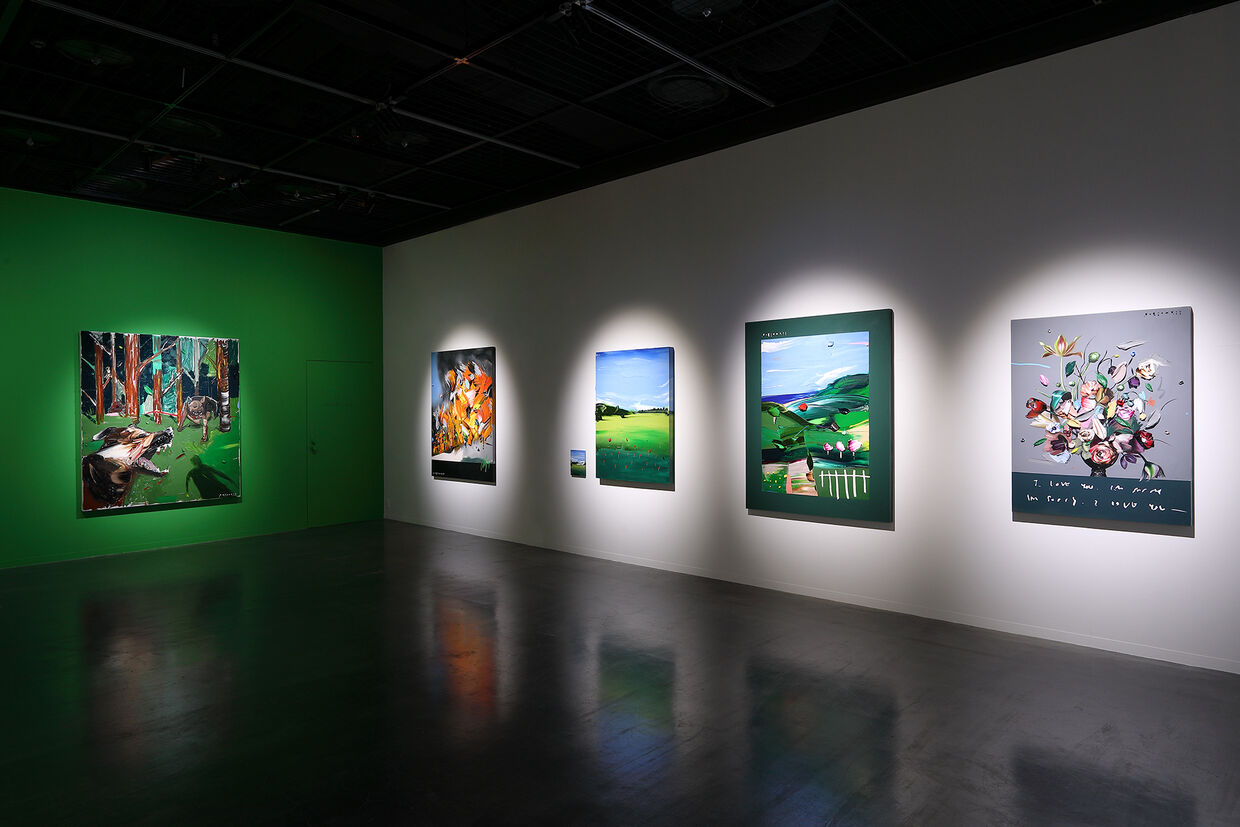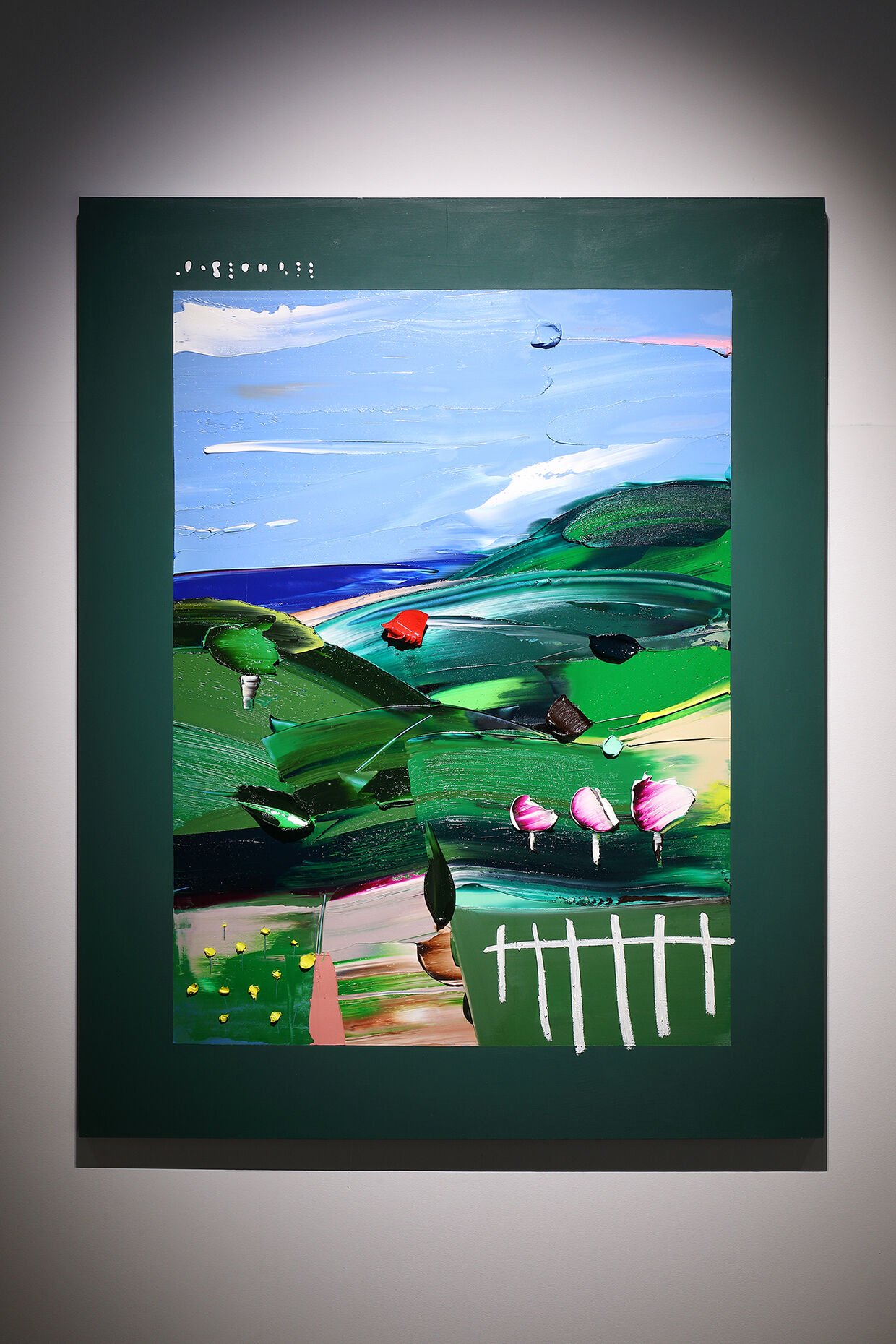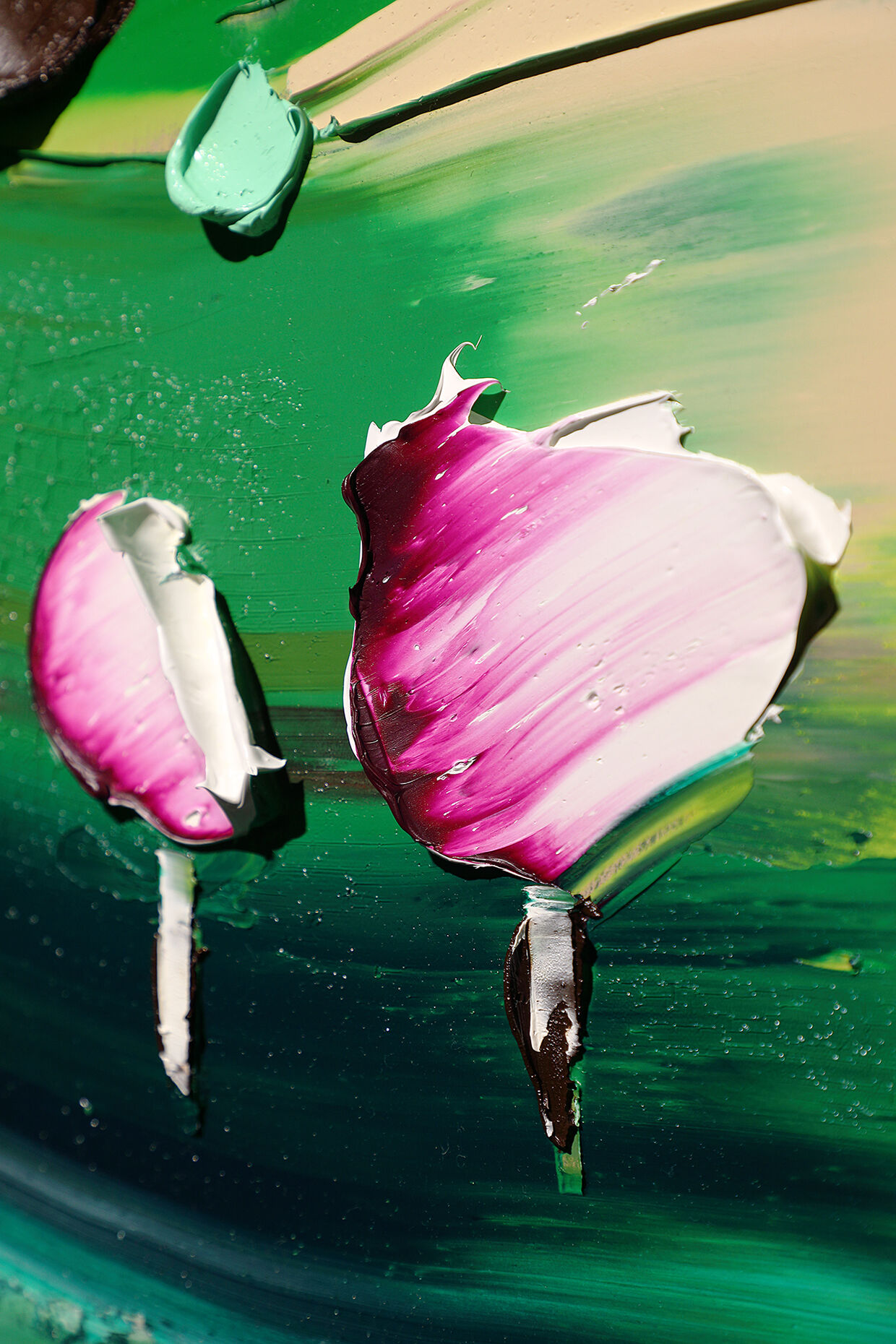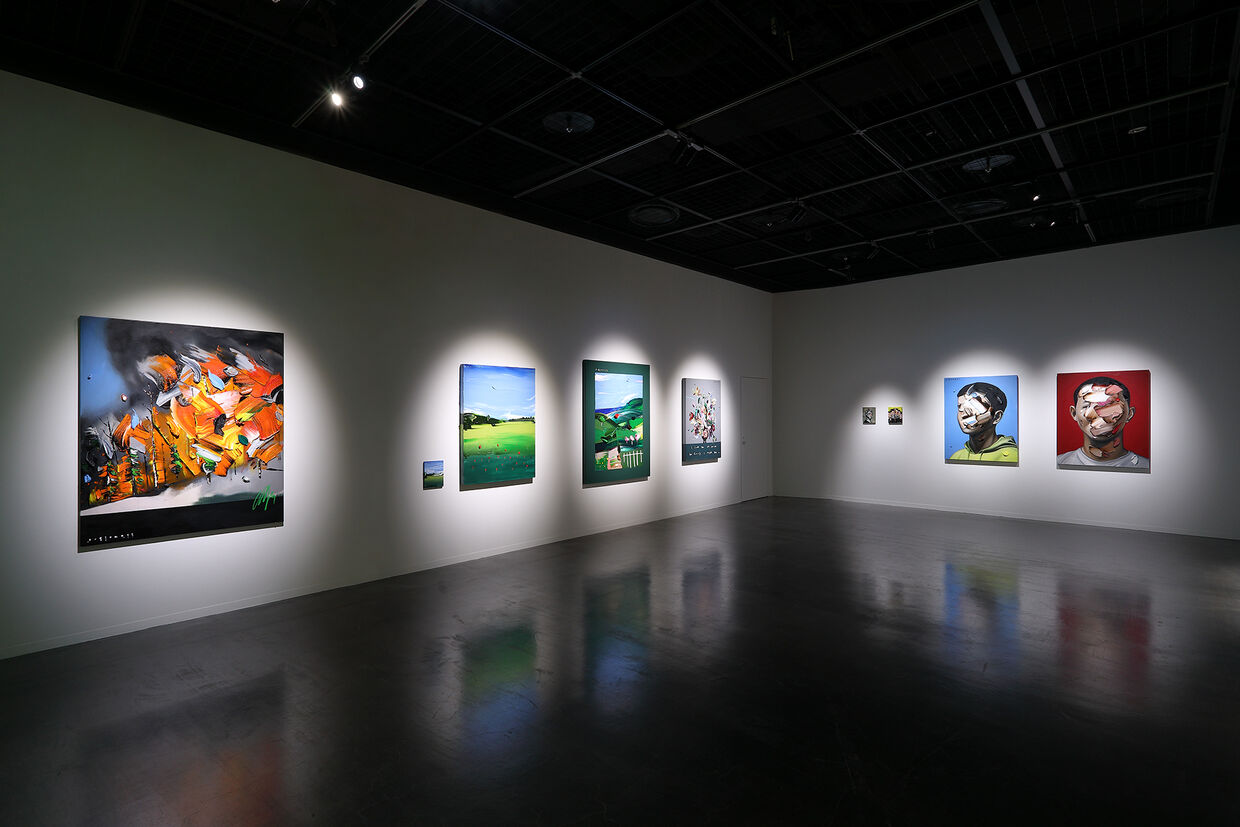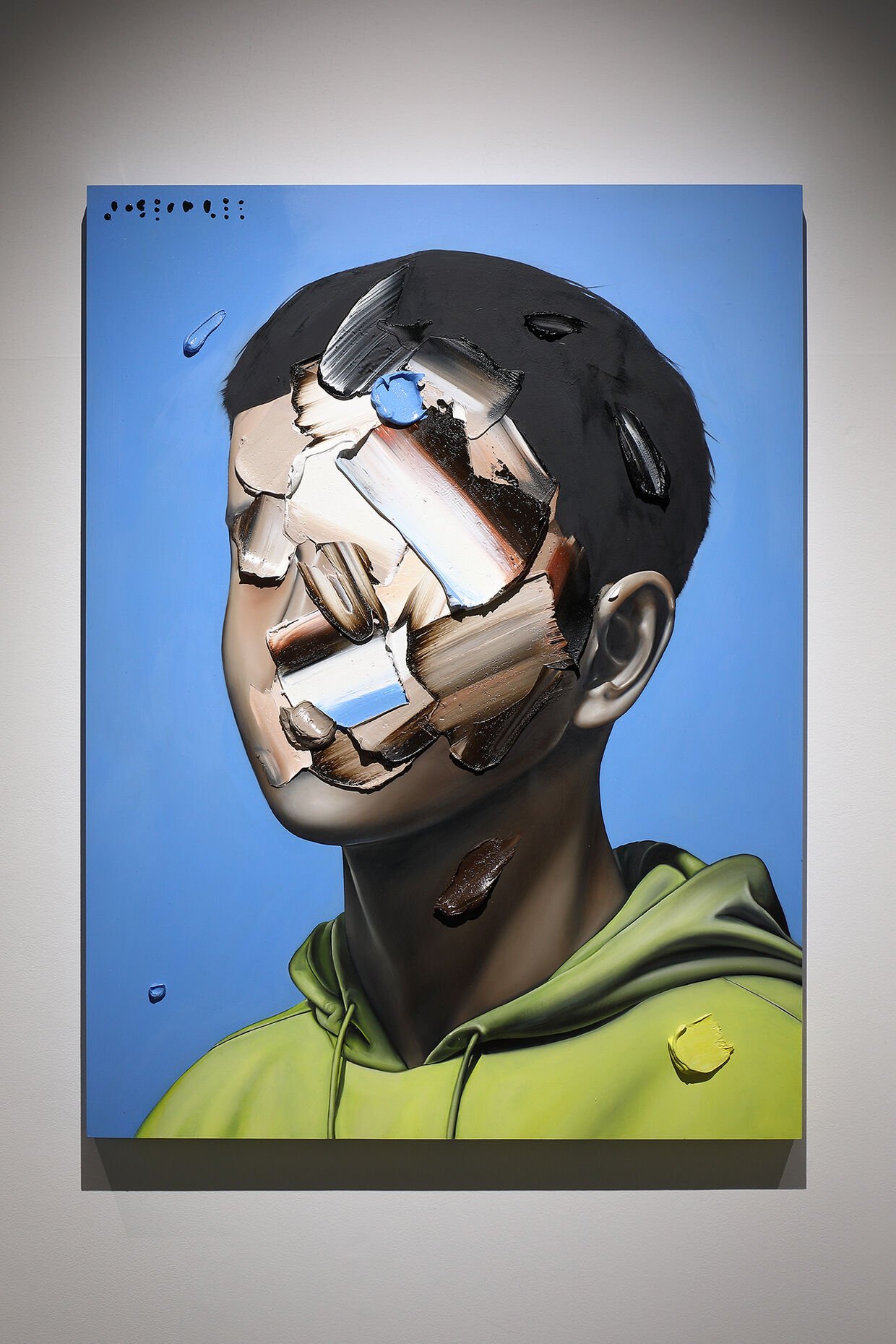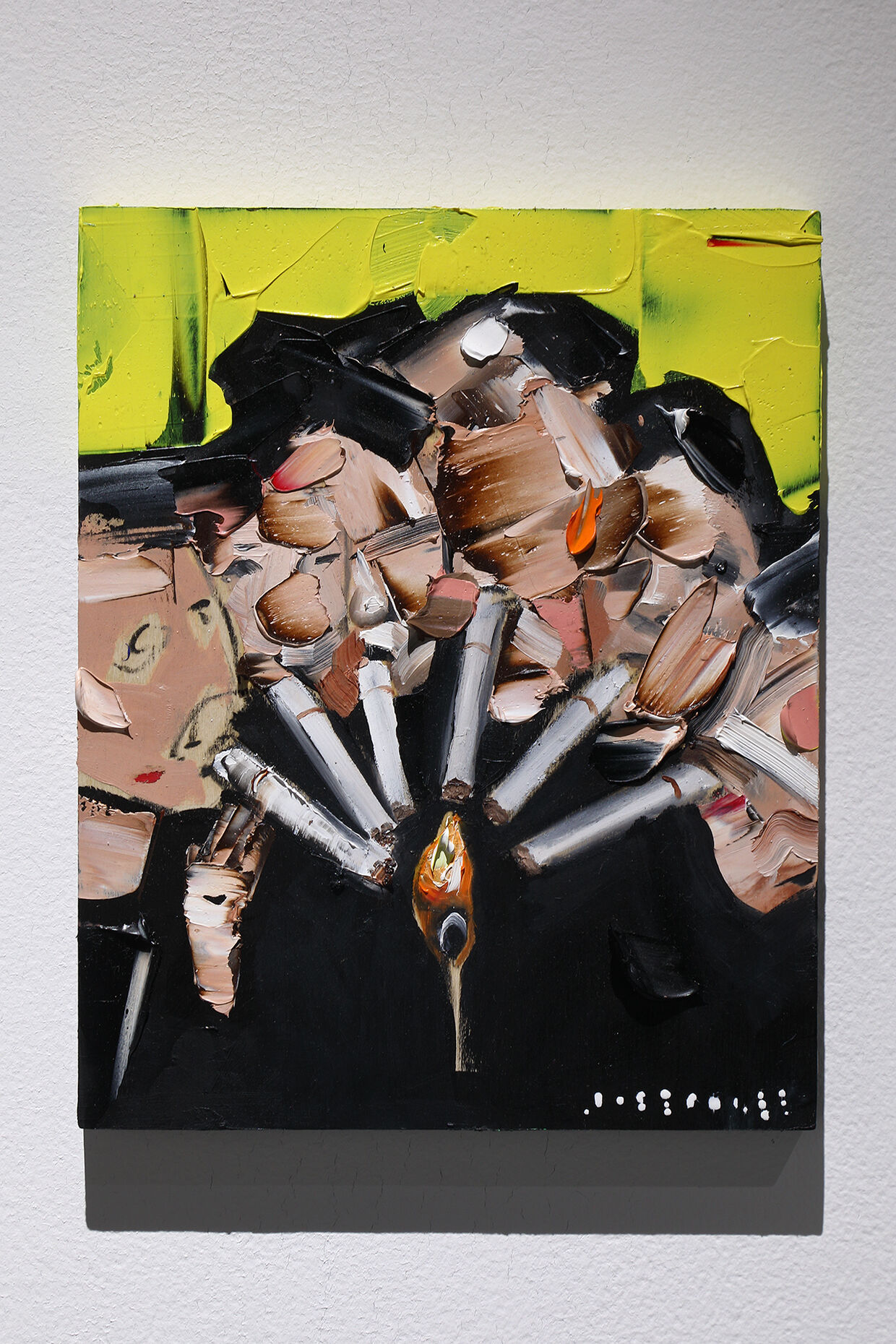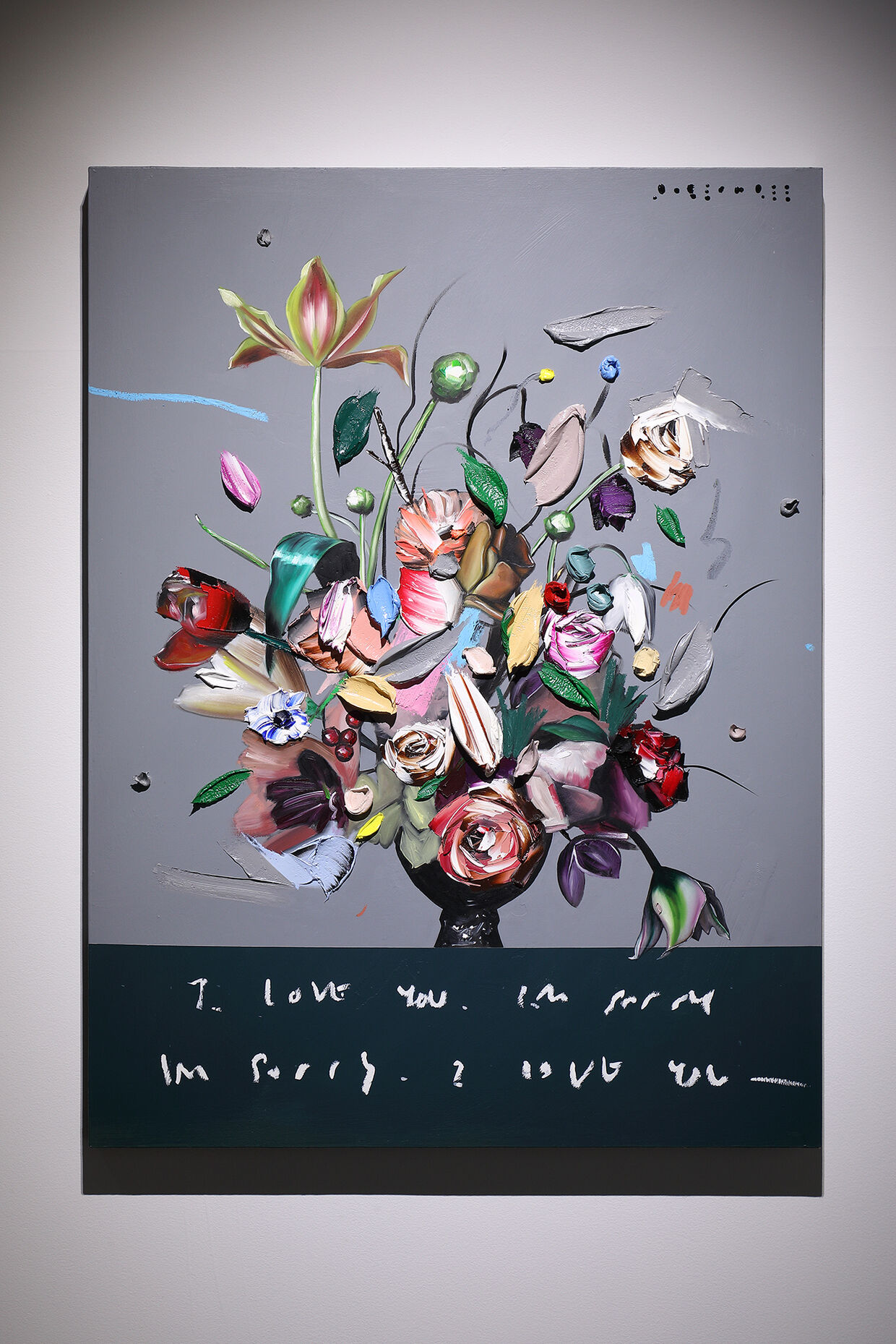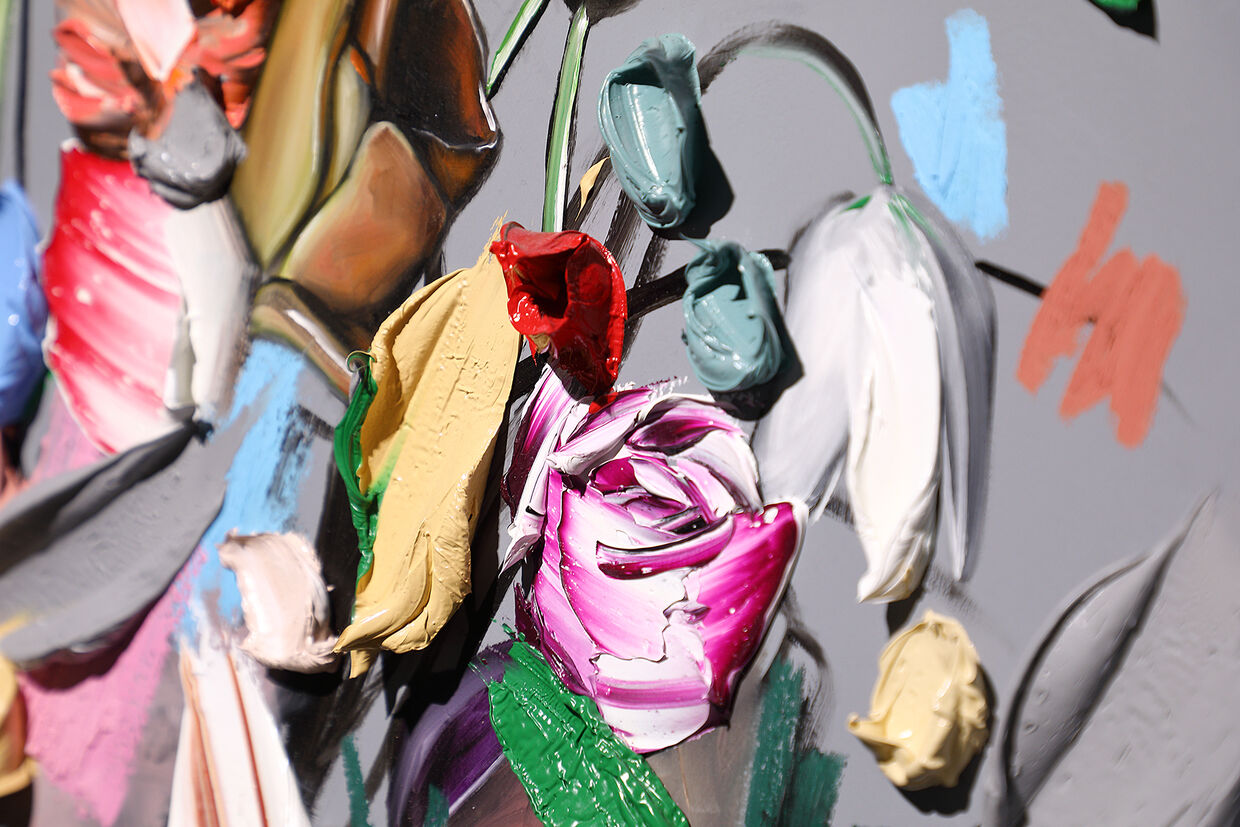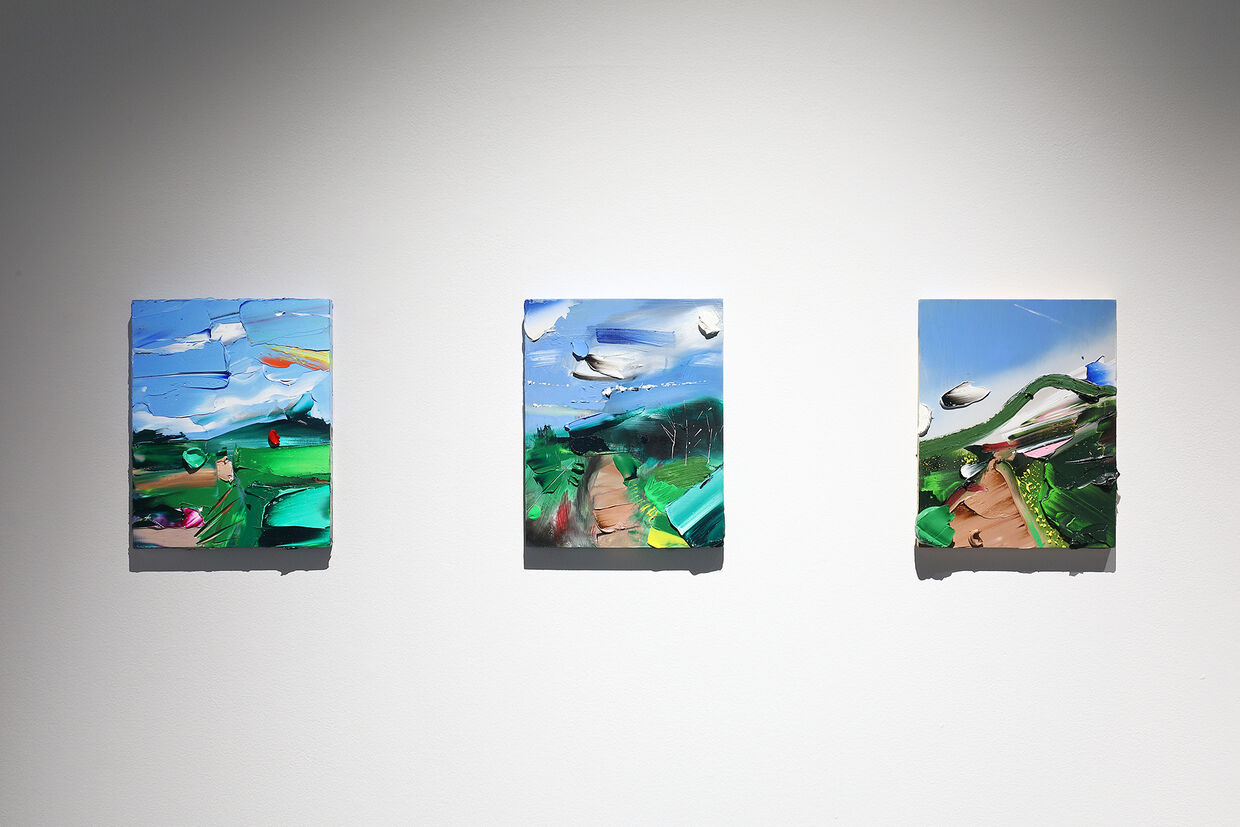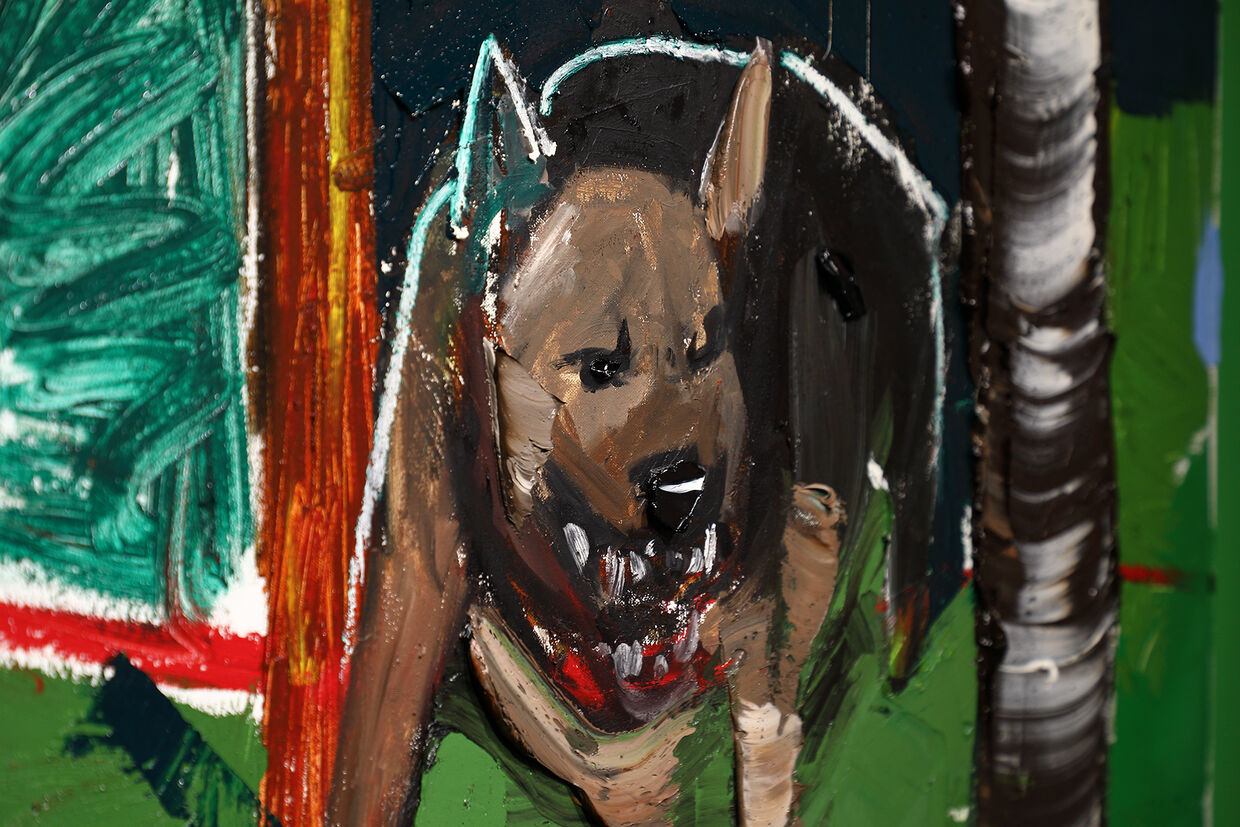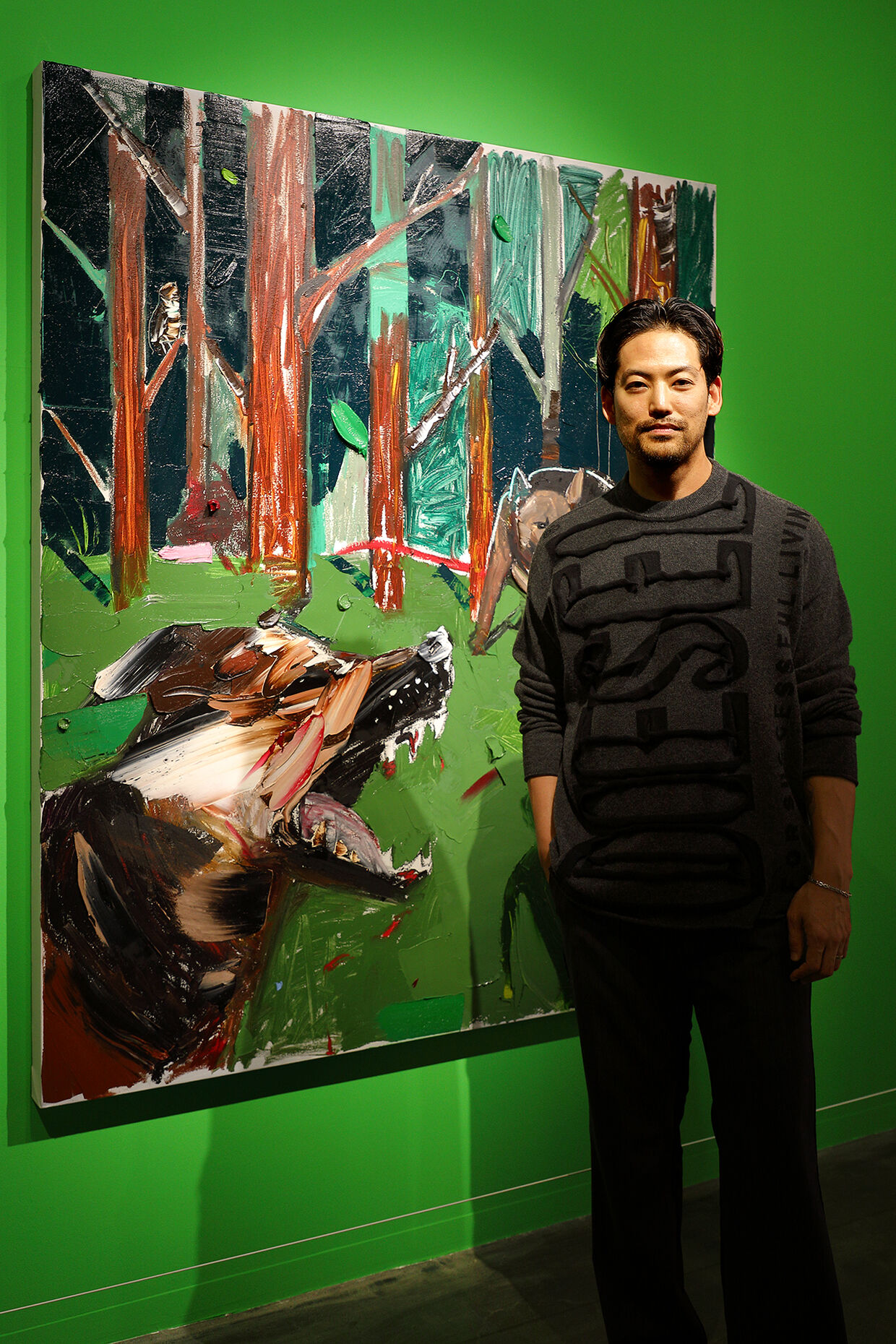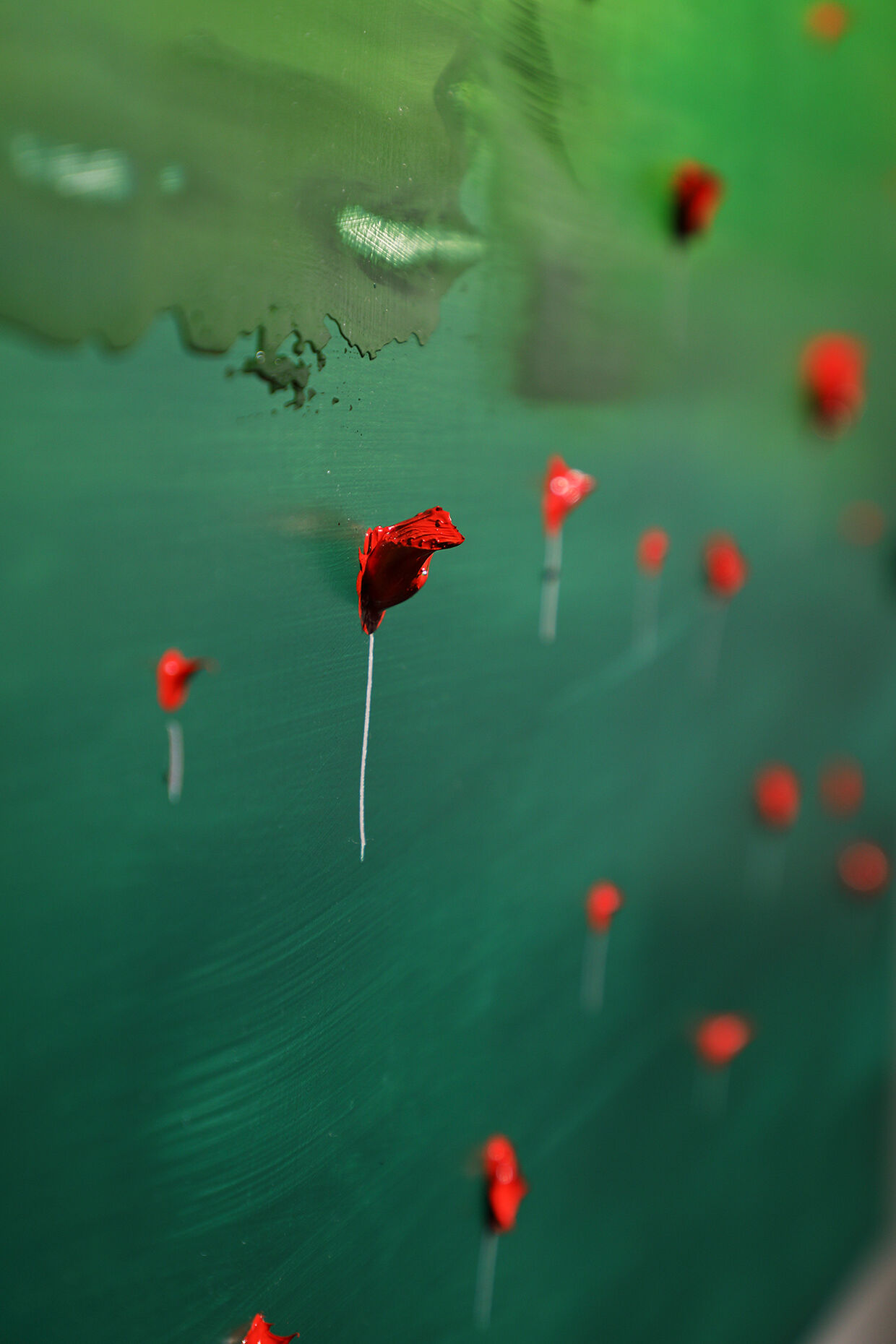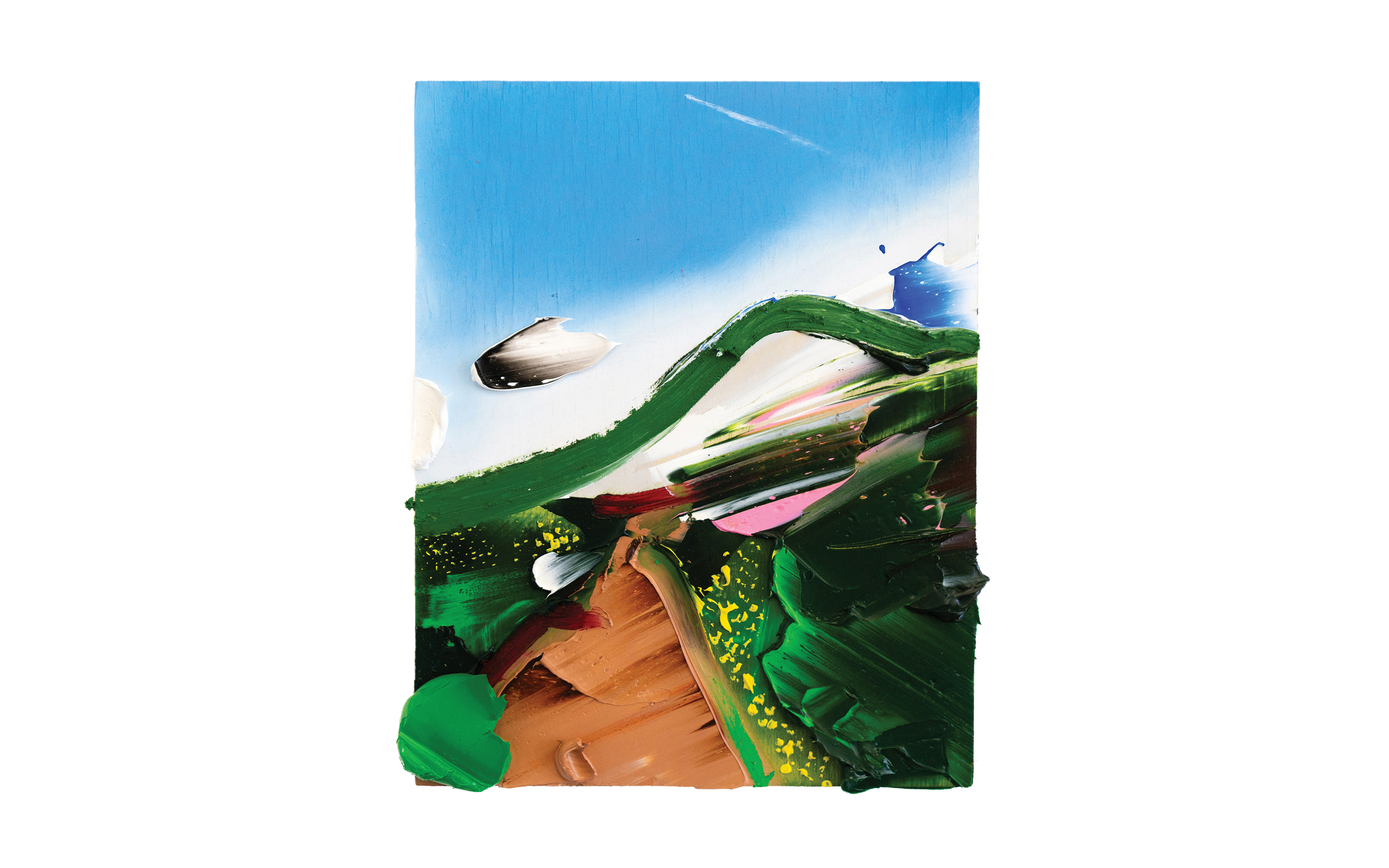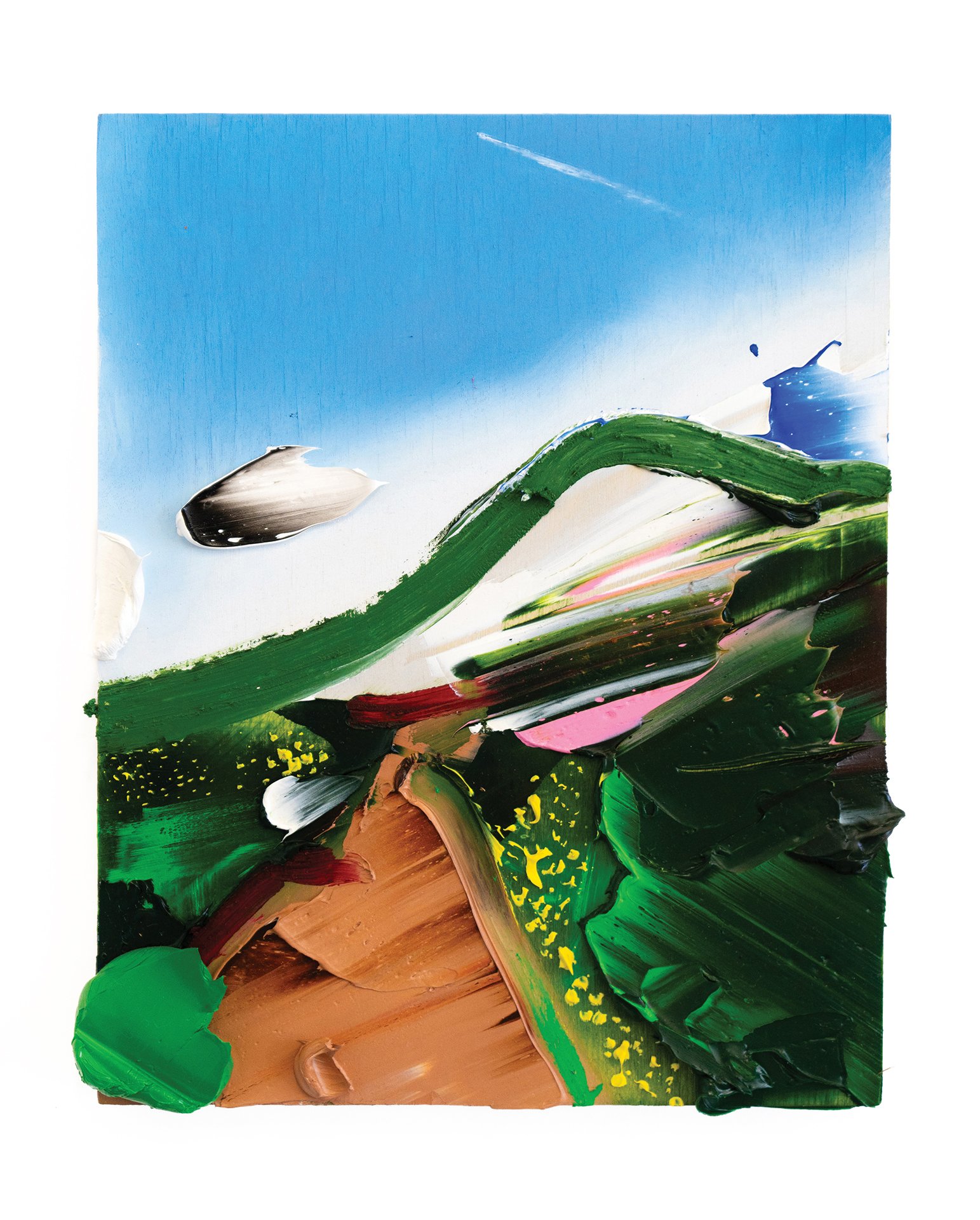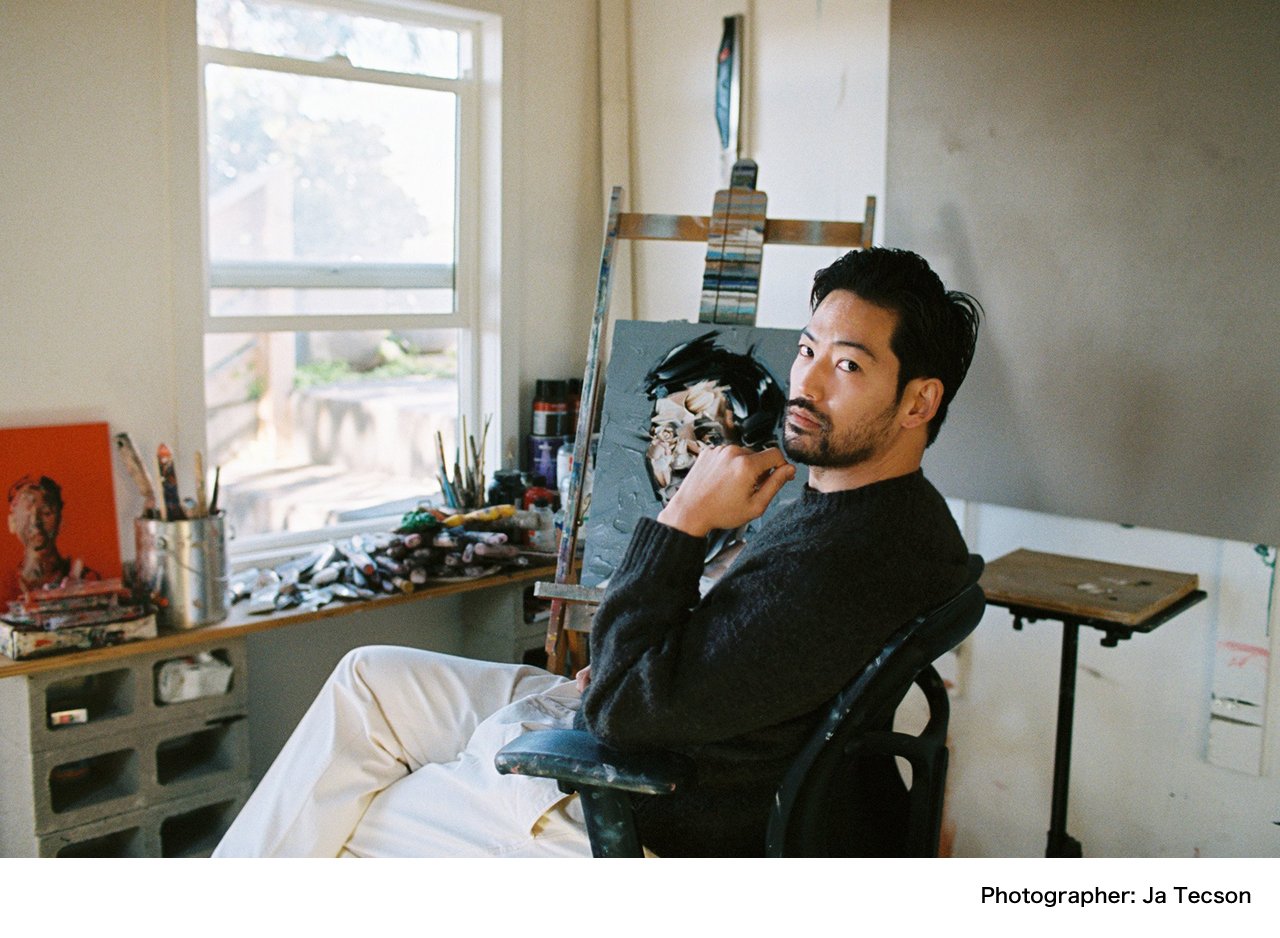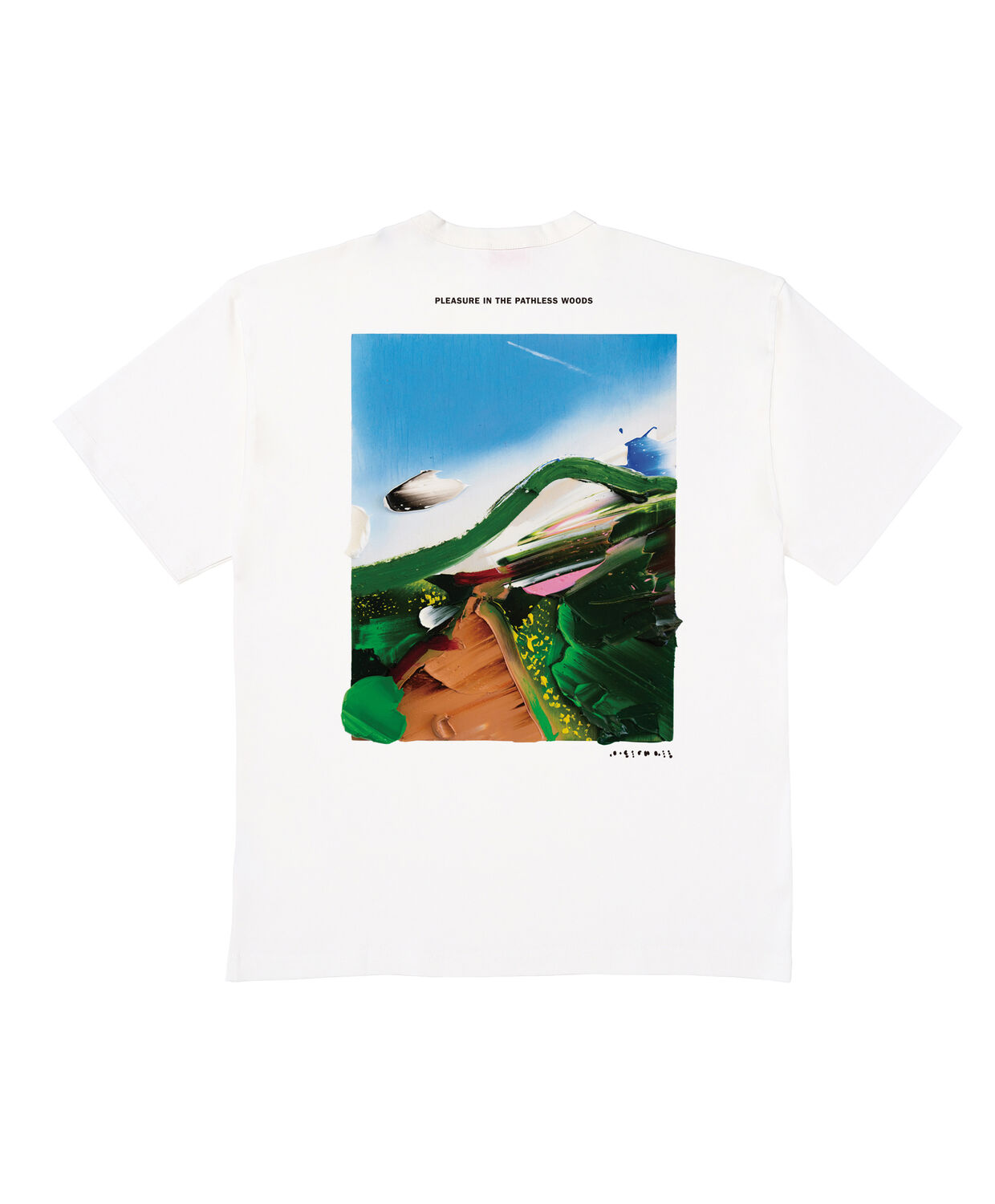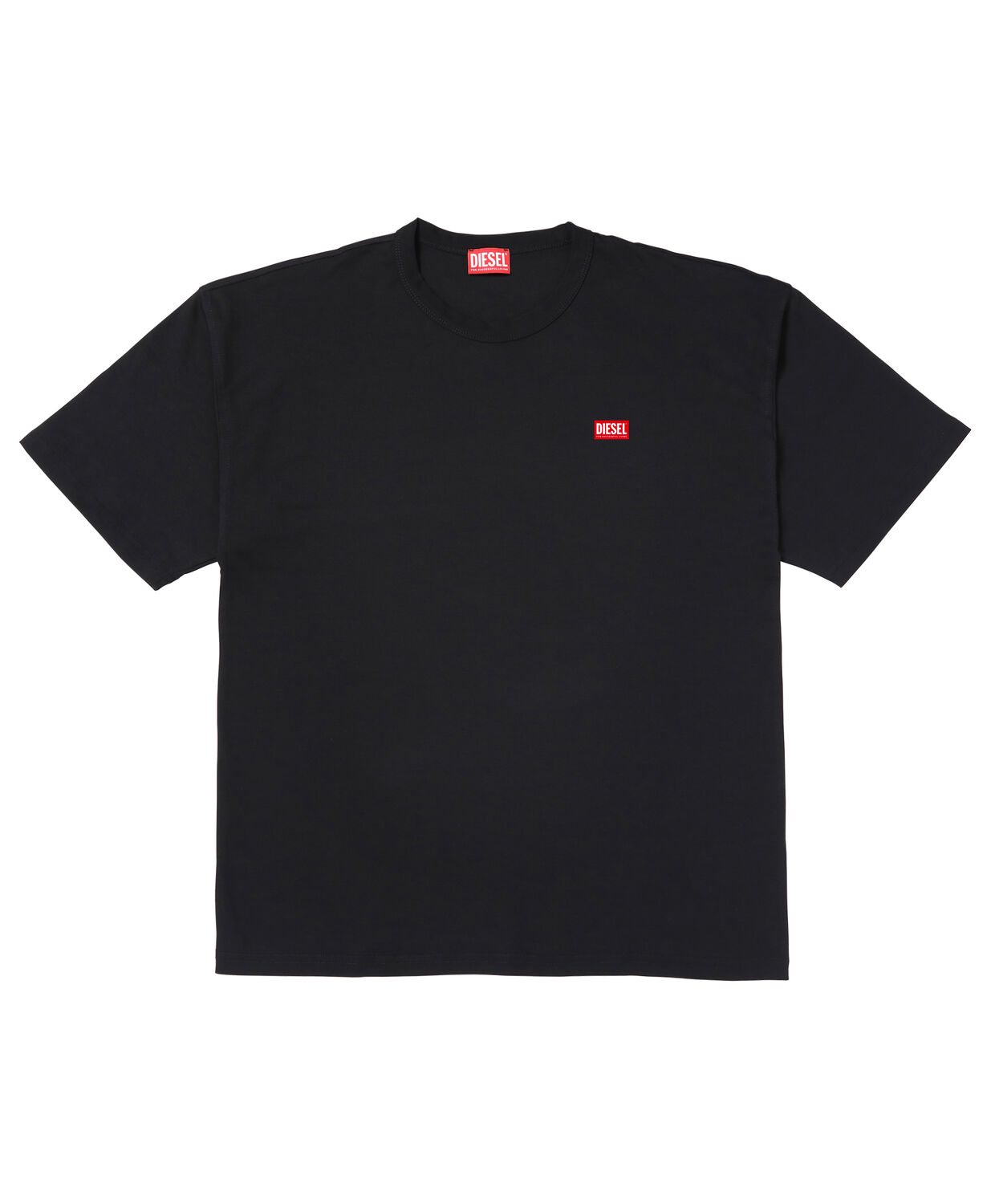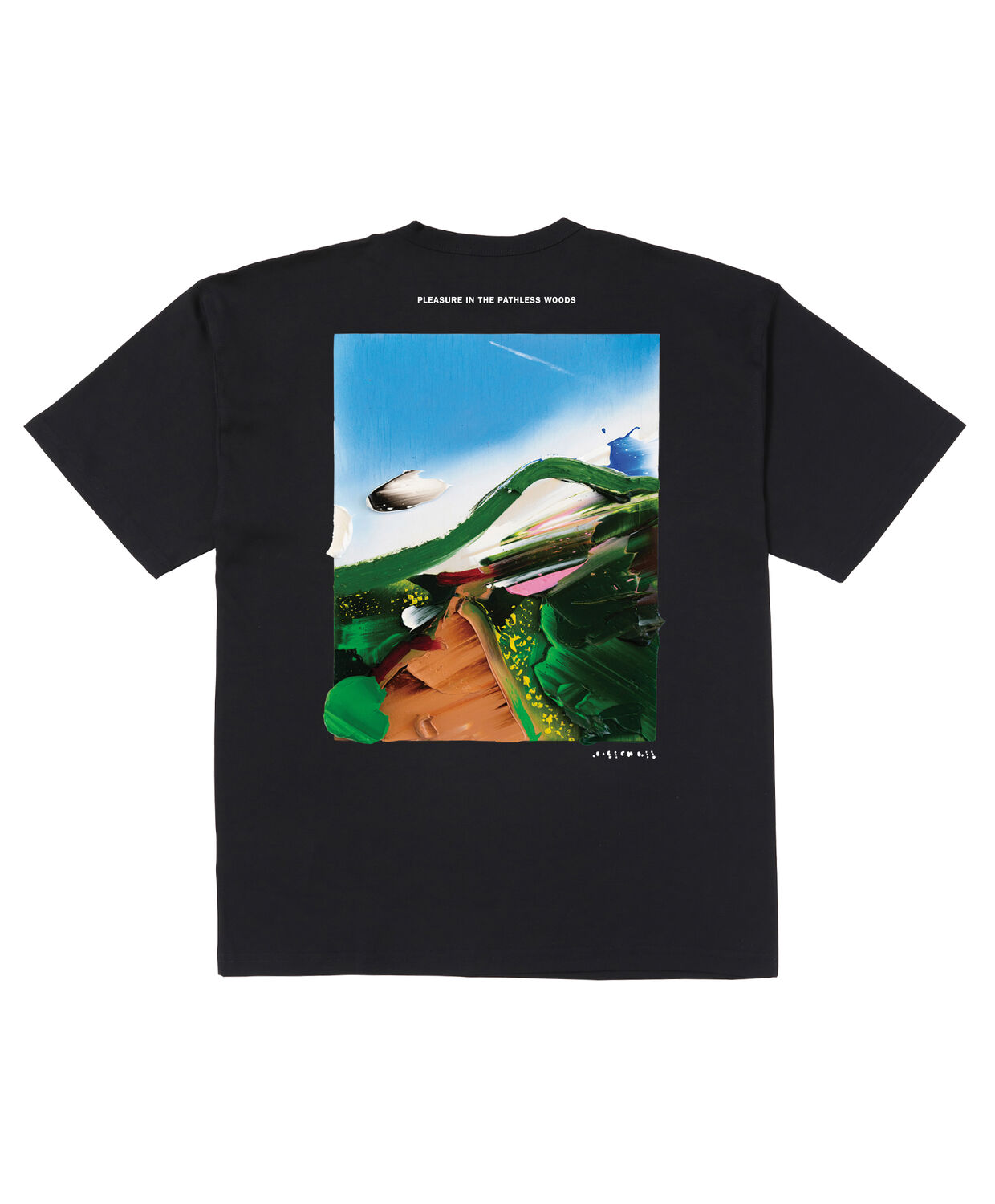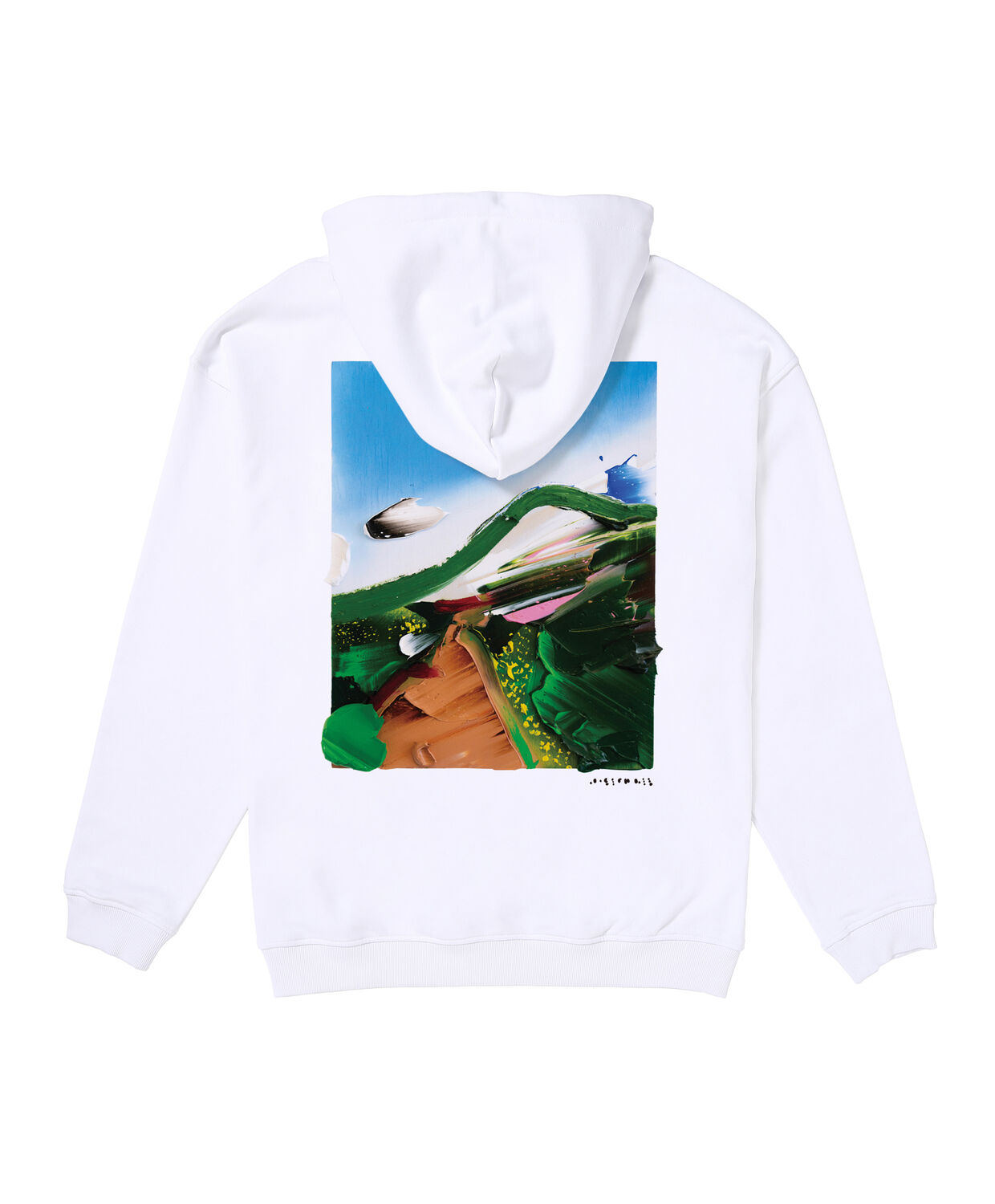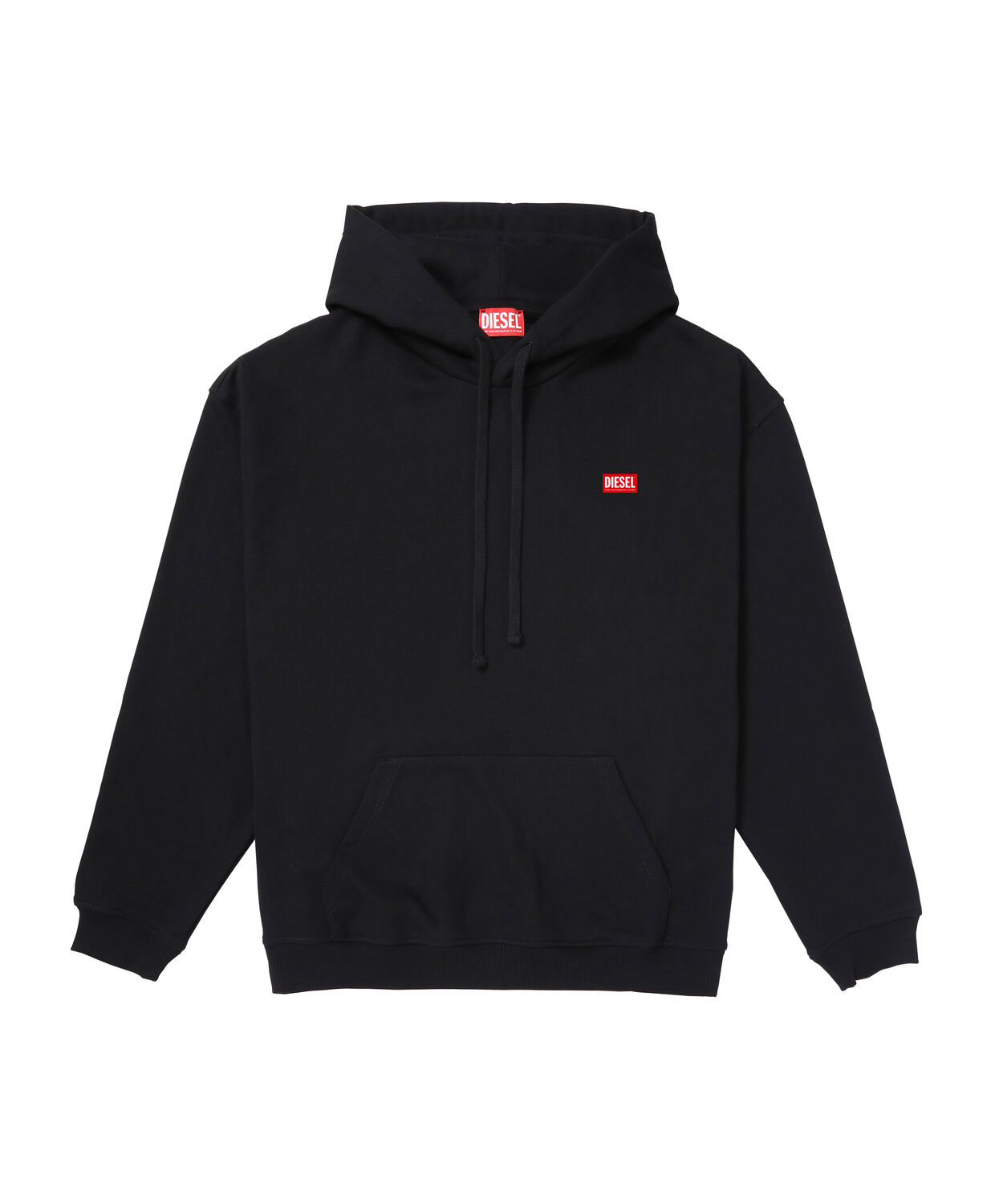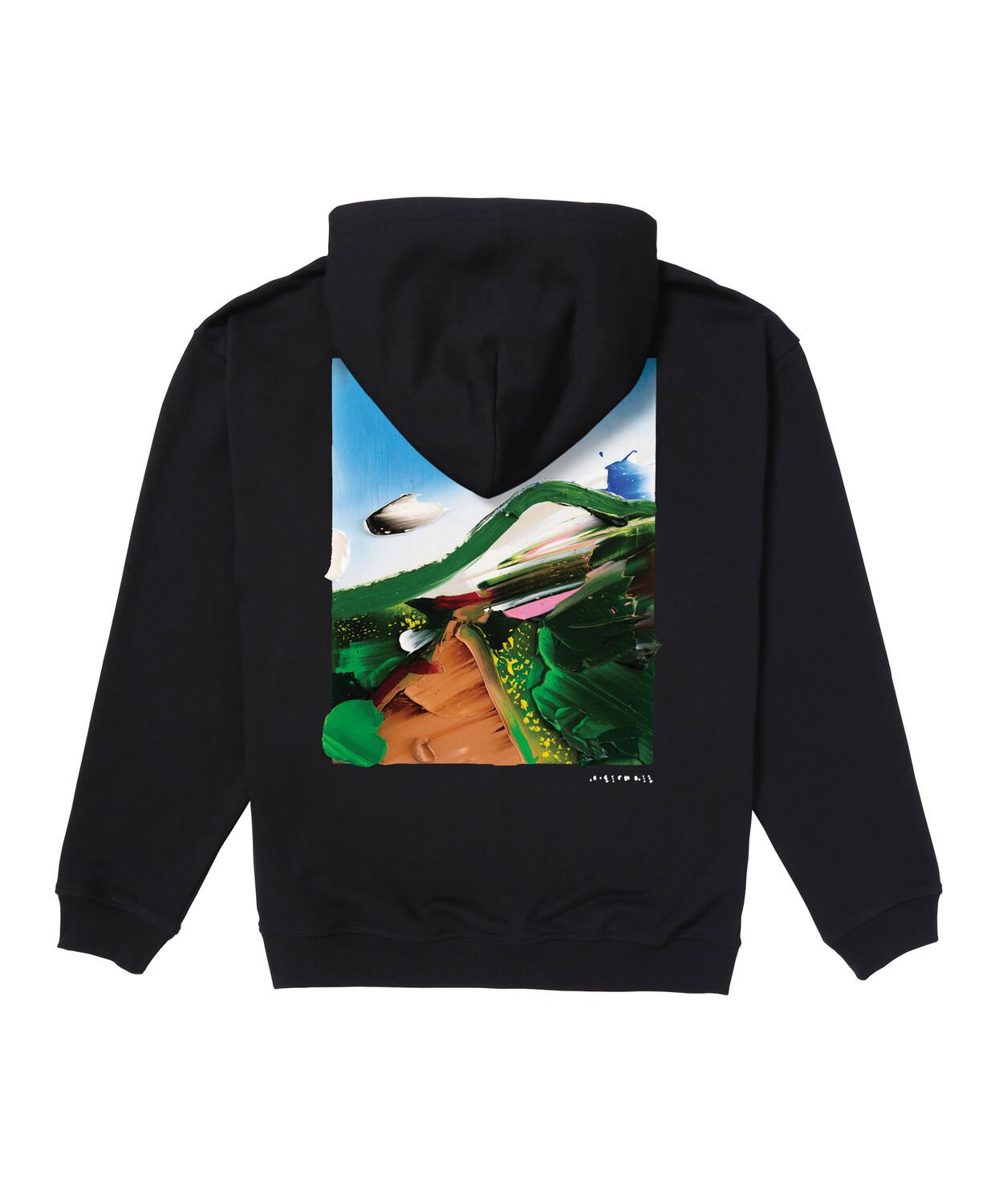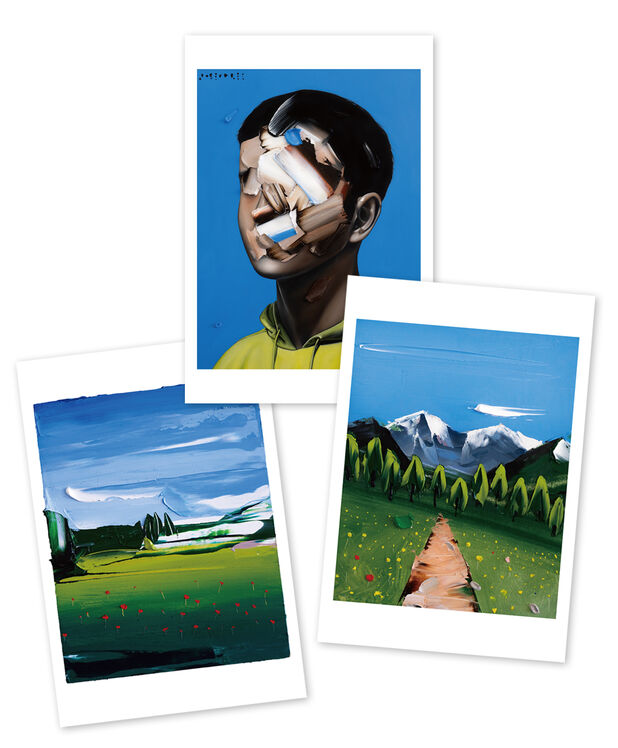DIESEL ART GALLERY is pleased to present L.A. based Korean American artist and actor JOSEPH LEE’s first solo show in Japan “PLEASURE IN THE PATHLESS WOODS” from September 23rd through November 16th, 2023.
In addition to the artworks, limited edition goods specially created for the exhibition will be on sale at the gallery.
CONCEPT
PLEASURE IN THE PATHLESS WOODS
The exhibition’s title is a line from Canto IV of Lord Byron’s poem “Childe Harold’s Pilgrimage” ―the viewer is invited to enter into an intimate relationship with the artist, who in past years has gone on a pilgrimage of solitude. Joseph Lee is known for his large-scale portraits and has long been fascinated by people, their masks, and ultimately, hidden identities. However, during the pandemic, the artist was forced away from his usual subjects, and instead, he took walks in nature, alone. This daily solitude forced a natural trajectory to move away from faces and instead to investigate his surroundings. “PLEASURE IN THE PATHLESS WOODS” is a representation of his time in solitude and ultimately, a celebration of wandering off through an unknown place and all that entails – fear, uncertainty, excitement, and then: a clearing, a beautiful meadow, sun shining through in a certain slant, and the trees opening to a clear sky.
There is a pleasure in the pathless woods,
There is a rapture on the lonely shore,
There is society, where none intrudes,
By the deep Sea, and music in its roar:
I love not Man the less, but Nature more,
From these our interviews, in which I steal
From all I may be, or have been before,
To mingle with the Universe, and feel
What I can ne'er express, yet cannot all conceal.
–Canto IV, Childe Harold's Pilgrimage
PLEASURE IN THE PATHLESS WOODS opens up moments where the subject’s intention may be invisible or unknown, but after an invitation to pause and reflect on context – the steps that come before and after each moment – unfolds into delightful surprises of layered meaning, tacit connection, and almost accidental growth.
The act of smoking a cigarette – mundane yet sacred – finds men huddled together for a brief moment, excused from daily realities to secure their own headspace for those few drags. This is camaraderie among those who are unable to communicate or be vulnerable in any other way.
A child at the precise moment where he/she/they is no longer a kid. In some ways, they have been forced to grow, yet they can also actively choose to turn a new page and embark on their future, full of fear, yet also of curiosity and excitement.
A son reconnecting with an estranged father who finds it easier to apologize than to express love, even as he struggles to rebuild a broken relationship before passing away.
Lee’s selection of the quote from Byron’s classic poem pushes the famous melancholy of the “Byronic hero” closer to the stoic, the humble and curious observer. Lee notes: “It brings me peace and humility knowing how small we all are to the natural forces surrounding us. But the peace also comes from the unknown path. To release control and allow myself to lean into whatever moment that comes.”
This exhibition showcases the pathlessness of humans woven into the natural world.
DIESEL ART GALLERY to hold "PLEASURE IN THE PATHLESS WOODS", the first solo exhibition in Japan by world-renowned artist and actor JOSEPH LEE.
DIESEL ART GALLERY is pleased to present L.A. based Korean American artist and actor JOSEPH LEE’s first solo show in Japan “PLEASURE IN THE PATHLESS WOODS” from September 23rd through November 16th, 2023.
In addition to the artworks, limited edition goods specially created for the exhibition will be on sale at the gallery.
CONCEPT
PLEASURE IN THE PATHLESS WOODS
The exhibition’s title is a line from Canto IV of Lord Byron’s poem “Childe Harold’s Pilgrimage” ―the viewer is invited to enter into an intimate relationship with the artist, who in past years has gone on a pilgrimage of solitude. Joseph Lee is known for his large-scale portraits and has long been fascinated by people, their masks, and ultimately, hidden identities. However, during the pandemic, the artist was forced away from his usual subjects, and instead, he took walks in nature, alone. This daily solitude forced a natural trajectory to move away from faces and instead to investigate his surroundings. “PLEASURE IN THE PATHLESS WOODS” is a representation of his time in solitude and ultimately, a celebration of wandering off through an unknown place and all that entails – fear, uncertainty, excitement, and then: a clearing, a beautiful meadow, sun shining through in a certain slant, and the trees opening to a clear sky.
There is a pleasure in the pathless woods,
There is a rapture on the lonely shore,
There is society, where none intrudes,
By the deep Sea, and music in its roar:
I love not Man the less, but Nature more,
From these our interviews, in which I steal
From all I may be, or have been before,
To mingle with the Universe, and feel
What I can ne'er express, yet cannot all conceal.
–Canto IV, Childe Harold's Pilgrimage
PLEASURE IN THE PATHLESS WOODS opens up moments where the subject’s intention may be invisible or unknown, but after an invitation to pause and reflect on context – the steps that come before and after each moment – unfolds into delightful surprises of layered meaning, tacit connection, and almost accidental growth.
The act of smoking a cigarette – mundane yet sacred – finds men huddled together for a brief moment, excused from daily realities to secure their own headspace for those few drags. This is camaraderie among those who are unable to communicate or be vulnerable in any other way.
A child at the precise moment where he/she/they is no longer a kid. In some ways, they have been forced to grow, yet they can also actively choose to turn a new page and embark on their future, full of fear, yet also of curiosity and excitement.
A son reconnecting with an estranged father who finds it easier to apologize than to express love, even as he struggles to rebuild a broken relationship before passing away.
Lee’s selection of the quote from Byron’s classic poem pushes the famous melancholy of the “Byronic hero” closer to the stoic, the humble and curious observer. Lee notes: “It brings me peace and humility knowing how small we all are to the natural forces surrounding us. But the peace also comes from the unknown path. To release control and allow myself to lean into whatever moment that comes.”
This exhibition showcases the pathlessness of humans woven into the natural world.
